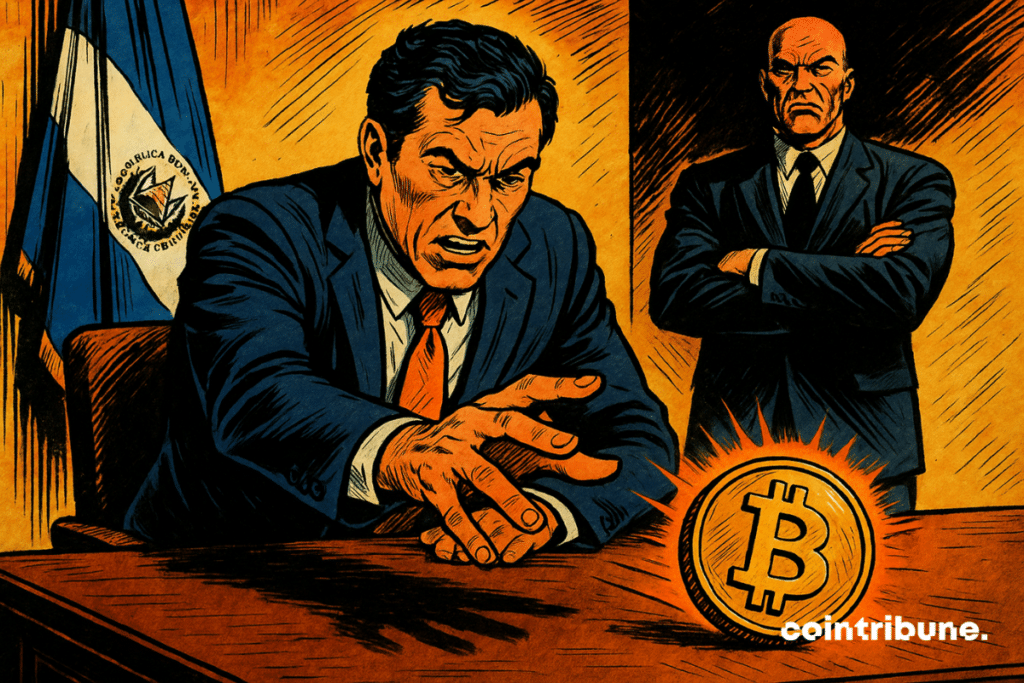IMF vs. Bukele: Bitcoin’s High-Stakes Clash Sparks Global Debate
El Salvador's Bitcoin experiment just hit a wall—and the IMF brought the bricks. The latest report throws cold water on President Nayib Bukele’s crypto utopia, questioning everything from financial stability to those viral 'Bitcoin Beach' success stories.
The Numbers Don’t Lie (But Politicians Do)
While Bukele’s team tweets moon emojis, the IMF’s 2025 risk assessment reveals a sobering gap between hype and reality. No hard stats? Classic move—when the data’s against you, pivot to memes.
Crypto Colonialism or Financial Revolution?
Developing nations are watching this showdown closely. If Bitcoin fails here, it’ll become Wall Street’s favorite 'I told you so' anecdote for decades. Spoiler: they’ll still take their 2% management fees either way.
This isn’t just about El Salvador—it’s crypto’s ultimate stress test. Buckle up.

In brief
- El Salvador has not bought any bitcoin since February 2025, according to an IMF report.
- The movements observed are consolidations, not new purchases.
- This revelation contradicts the statements of President Bukele and his Bitcoin Office.
The daily bitcoin fiction: Bukele caught off guard
Since November 2022, President Bukele, through his highly publicized bitcoin Office, proudly announced the daily purchase of one bitcoin. This initiative, seen as a defiance to international financial institutions, was also a powerful narrative tool: that of a country resisting and investing in the future.
BTCUSDT chart by TradingViewBut the story is crumbling. According to the document published on July 15 as part of the IMF compliance report, the stock of bitcoins held by the public sector has remained unchanged since February.
The officials: Central Bank President Douglas Pablo Rodríguez Fuentes and Finance Minister Jerson Rogelio Posada Molina, assert that the wallets, both hot and cold, have been fully handed over to the IMF for verification. Translation: everything is traceable, verified, and the numbers do not lie.
This is a dramatic turnaround because it contradicts the statements of the president himself, who swore never to stop buying BTC, even if it meant tension with the IMF.
Consolidation, not accumulation: El Salvador’s unclear strategy
While observers expected regular purchases, the movements identified on the blockchain mainly show consolidations of wallets. The IMF report specifies:
Increases in Bitcoin holdings in the Strategic Bitcoin Reserve Fund reflect the consolidation of Bitcoin across various government-owned wallets.
This means that the Salvadoran government was simply moving funds already in its possession, likely to better secure or organize them.
The image of an accumulating state dissipates. Worse, if the official statements aimed to give an impression of consistency, they now dangerously flirt with political misinformation.
Bitcoin and realpolitik: El Salvador seeks balance
What is at stake here goes beyond simple crypto portfolio management. El Salvador faces a: satisfying the IMF’s transparency and prudence requirements while cultivating its avant-garde image in the crypto universe.
The Bukele administration seems to want to: that reassuring one of being a good IMF student, and that flamboyant one of being a bitcoin pioneer. The problem? Trying to play on both tables risks eroding credibility.
The IMF, for its part, remains pragmatic. It recognizes that consolidating BTC does not violate the terms of the financing. But this polite neutrality does not erase the underlying tension: that of a country wanting to free itself while remaining dependent.
Has El Salvador really turned the page on bitcoin, or is this simply a tactical adjustment to preserve vital financial support? Difficult to decide. One thing is certain: the era of storytelling around daily bitcoin purchases seems truly over. Fortunately, this does not affect bitcoin’s price, which continues its steady trajectory.
Maximize your Cointribune experience with our "Read to Earn" program! For every article you read, earn points and access exclusive rewards. Sign up now and start earning benefits.

